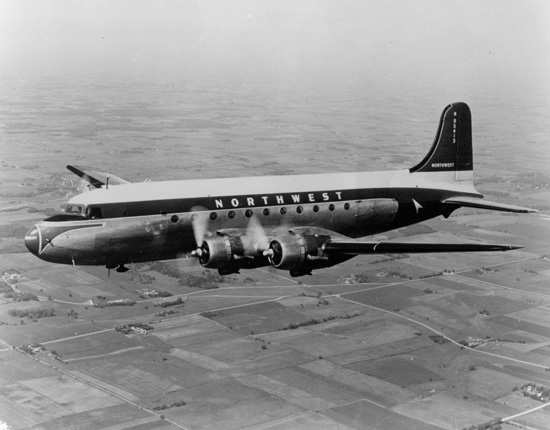- Search Yields Unexpected Discoveries
- The 1950 Disaster
After two decades of scanning Lake Michigan's depths with sonar technology, a research group announced today it is ending its search for Northwest Orient Flight 2501, which crashed into the lake 75 years ago killing all 58 people aboard.
The Michigan Shipwreck Research Association has covered 700 square miles of lake bottom since 2004, making it one of the longest civilian aviation search efforts in U.S. history. Scientists now believe the aircraft broke apart into pieces too small for detection and likely "sunk into the muck" on the lake floor.

Valerie van Heest, executive director of the Michigan Shipwreck Research Association, told The Detroit News she has "mixed feelings" about ending the search1. "Part of me feels like we have failed," van Heest said, "but we have done so much to keep memory of this accident and these victims at forefront that I feel like we've done better for them than if we'd found the wreckage"1.
The search effort, which began as a joint venture with acclaimed adventure writer Clive Cussler's National Underwater Marine Agency, uncovered nine shipwrecks between 2005 and 20131. Cussler provided financial support until 2017 and died in 20202. The team also located two unmarked graves containing victims' remains that had washed ashore and been buried without families' knowledge1.
Northwest Orient Flight 2501, a propeller-driven DC-4, departed LaGuardia Airport on the evening of June 23, 1950, bound for Seattle with planned stops in Minneapolis and Spokane1. As the aircraft crossed Lake Michigan at 3,500 feet near Benton Harbor, Michigan, Captain Robert C. Lind requested permission to descend to 2,500 feet due to severe thunderstorms2. Air traffic control denied the request due to other aircraft in the area2.
That was the last communication from Flight 25012. The crash became the deadliest commercial aviation disaster in U.S. history at the time3. Coast Guard vessels found floating debris, luggage, and human remains the next morning, but the main wreckage was never located45.
Van Heest, who authored the book "Fatal Crossing" about the mystery, said the plane "hit the water with great force" and there was no possibility of survival3. Cussler wrote in 2018, "I hope someday the families of those lost will have closure"1.



